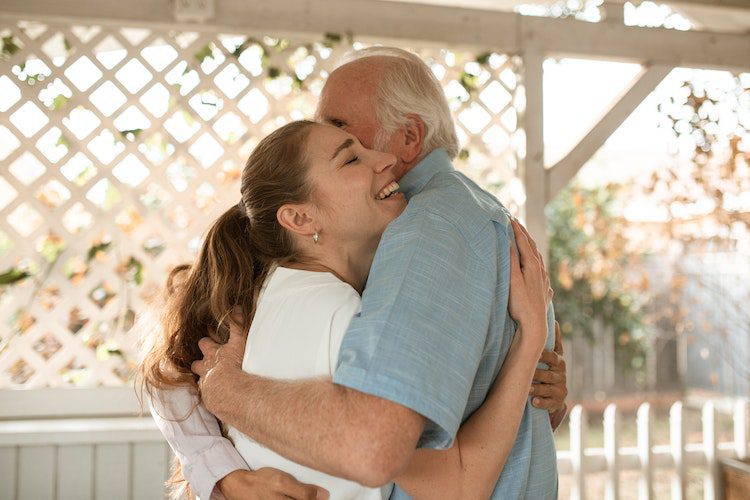At Willow Creek Behavioral Health we fully recognize the crucial curative component families serve in the recovery of their loved ones, which is why we’ve devoted large portions of our operational procedures toward it. We go beyond suggesting families visit or call and urge them to actively participate in the personalized treatment regimen designed by our doctors. Leaving no stone unturned, we also provide regular updates on patient progress. You serve a foundational function toward the patient’s mental wellness, as a partner in our integrated effort and concern for your loved one.
This article will cover step-by-step techniques where you’re influential in shaping an environment that upholds and enhances the actions of the medical staff. Some key best practices to help maintain our mission would be to:
- Strive for an atmosphere of cooperation, between both the patient and the attending physician.
- Remain interested in the patient’s recovery plan by asking questions and following up.
- Be aware of current and upcoming goals, but don’t push the patient forward.
- Be present and available, while remembering support does not equal control of the outcome.
- Remain positive and hopeful, while remembering no one can dictate a recovery timeline.
How to Make the Most of Your In-Person Visit
Our team of medical experts and support staff will gladly guide you through the process over the phone in preparation for your visit, and in person upon your pre-scheduled arrival. Willow Creek Behavioral Health considers your involvement as a part of the successful psychotherapeutic program your loved one is part of. While many inpatient stays can be both brief and effective, you should prepare for an extended treatment period while hoping for a quick recuperation. We’ll provide helpful instructions below, but keep in mind the best way to make the most of your visit to our mental hospital is simply to be there. Helping the patient to avoid severing a connection with the outside world and promoting the reality that a stable life (and the people they love) are waiting for them, cannot be overstated. This will incentivize their motivation to fully engage in the treatment protocol.
What to Do and Not Do When Visiting a Loved One at Willow Creek
- DO visit as often as you can, making sure to always ask the patient if they’re on board for visits.
- DO send approved gifts, like encouraging handwritten cards.
- DO interact with them as you normally would if they were recovering from surgery, for example.
- DO ask if they need any chores or housework done while they’re admitted.
- DO bring fun games to play together such as chess, Monopoly, or puzzles.
- DO acknowledge why they’re there and share your joy they’re seeking professional help.
- DO recognize that mental illness is a physical illness, similar to someone who has asthma.
- DON’T show up unannounced or unscheduled since visitation can be tiring.
- DON’T show pity, which creates an overall sense of alienation and negativity.
- DON’T blame the patient for their current situation, instead acknowledge their courage.
- DON’T burden them with outside concerns, which can be a point of stress/contention.
- DON’T go a day without some sort of outreach, including a 10-minute phone call or small gift.
How to Track the Recovery Progress of Your Loved One
The first thing to be aware of is your support, involvement, and awareness of your loved one’s admission to Willow Creek doesn’t start during visitation hours – it starts with the conversation about seeking psychiatric intervention. In fact, if your loved one allows or requests your presence, we completely endorse you to join them from their initial assessment, admission, and eventual discharge with aftercare planning. Severe mental illness isn’t a condition that can be conquered over a weekend, but through the long-term unified front of qualified treatment and genuine empathy from family and friends.
Tracking the productivity of a patient, and their achievement of rehabilitative benchmarks is a vital aspect of any mental health crisis recovery. At Willow Creek Behavioral Health, if the patient has authorized you to receive their progress notes, you can review these details prepared by their doctor. Once the patient has expressed their wishes to include you in their treatment, we make the process easy.
How to Provide Caring Support without Hindering Their Recovery
The truth is psychiatric treatment begins and continues with you. While we provide highly effective and scientifically sound treatment plans in the midst of their journey back to mental wellness, you’ve been there and will continue to be. A post-discharge aftercare strategy will be provided to the patient and anyone of their choosing. You are instrumental in the continued activism against relapse in the future and may even be relied upon by our medical staff to provide insight during the treatment period. Each of these components becomes part of the greater whole, in a streamlined undertaking to usher the patient back to mental stability and clarity.
A shocking study published by the National Institute of Health reveals that 40% of individuals undergoing psychotherapeutic inpatient care do not receive visitors. This is especially troubling because researchers also demonstrated a 2:1 recovery ratio when patients who received visitors were compared to the 40% who didn’t. The study proposed an undeniable correlation existed indicating visitation provided a significant improvement in the effectiveness of therapy. Because of these reasons and more, your role is to be vigilant, reliable, and optimistic.
As a final word of caution, be careful not to fixate on their condition. This can generate a sense of gloom, where the person feels as though they’ll never outgrow their mental illness or episode. Their illness doesn’t define them, just like a broken bone or illness doesn’t define any other patient. Instead, focus on their progress and how much ground they’ve covered (when the situation calls for it), so they feel empowered never to return to the dark place they escaped.
You Can Make a Difference, We’ll Provide the Directions
This data, as eye-opening as it was, only further solidify the established evidence we’ve been championing for so long. Your loved one needs you there, and we’ll provide the way. Please contact us or call our front desk to schedule your visitation at (888) 464-1498, and easily find your way to our Acute behavioral facility in Green Bay, Wisconsin, here.





